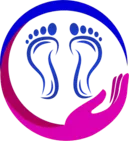Most minor heel pain goes away on its own after a few days of rest. But if it doesn't, that can indicate something more sinister is going on, and failing to address it right away may allow it to progress into a chronic, daily issue that causes serious disruption to your life. Dr. Mahmoud Salem and Dr. Christina Davison from Salem Foot and Ankle Specialists in Bedford and Salem, VA are experienced in treating heel pain.
What Causes Heel Pain?
There can be many causes of heel pain. Pinpointing the exact cause of your pain is the most important step in choosing an appropriate treatment plan. An initial diagnosis that is not accurate results in ineffective treatment.
Common conditions that can result in heel pain are:
- Plantar fasciitis
- Trauma to the foot and/or ankle
- Bone spurs
- Achilles tendonitis
- Arthritis
- Bursitis
Several not-so-common causes of heel pain are:
- Tarsal tunnel syndrome: Similar to carpal tunnel syndrome in the wrists/hands, a 'tunnel' is in your ankle as well that encases nerves leading to the foot. The space in this tunnel can decrease for several reasons and cause the nerves to become pinched, leading to heel pain.
- Sever's disease: This condition is seen in children, and results from the heel cone growing faster than the surrounding ligaments and tendons. As a result, these structures become overworked.
- Haglund's syndrome: This is also called 'pump bump" and involves the formation of a bony prominence on the back of the heel. This is usually in response to ill-fitting shoes.
- Osteomyelitis: Infection or inflammation of the heel bone
- Exercising without adequately stretching the calf muscles
- Stress fractures
- Heel pad bruise
What Are the Treatment Options for Heel Pain?
Many causes of heel pain require meant treatment options. The best treatment strategy for your pain may be quite different for another person.
Treatment options that may be recommended for your heel pain are:
- Avoidance of aggravating activities
- Rest
- NSAIDs (non-steroidal anti-inflammatory drugs) and painkillers
- Cortisone injections
- Custom orthotics
- Changing shoes to ones that provide more support
- Physical therapy is commonly ordered for heel pain. PT teaches strengthening and stretches and exercises for targeted muscles surrounding and supporting the heel. Pain-relieving modalities, such as ultrasound and electrical stimulation, may also be used.
Surgery is suggested as a last resort when conservative measures have not helped your heel pain. Surgery is only recommended as an initial intervention in severe cases, mostly in cases of trauma when damage to your heel is so significant that your podiatrist is convinced it will not heal with conservative treatment.
Contact Us
Treat your heel pain with Dr. Salem or Dr. Davison from Salem Foot and Ankle Specialists in Bedford and Salem, VA by calling (540) 982-0253.
